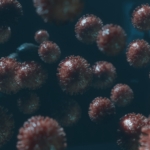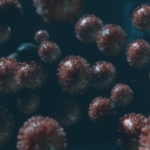
Picture a frog in slowly heating water. It won’t jump out, it’ll just boil. That’s us with antimicrobial resistance. And here’s the twist: there are no villains in this story. Just reasonable people making reasonable decisions that together created a monster.
In 1945, Alexander Fleming stood at the podium accepting his Nobel Prize for discovering penicillin. Millions of lives would be saved. But he issued a stark warning: “The thoughtless person playing with penicillin is morally responsible for the death of the man who succumbs to infection with the penicillin-resistant organism.”
The man who gave us antibiotics told us exactly how we’d lose them. We did it anyway.
The invisible cost
In the 1950s, a farmer made a discovery: adding antibiotics to animal feed made livestock grow faster and survive crowded conditions. More meat, lower prices, fewer hungry people. Who could argue with that?
Fast forward to today. About seventy percent of all antibiotics now go to animals, not people. We essentially gave bacteria a worldwide training program and wondered why they got stronger. But that farmer in 1955 was just trying to feed people. The superbugs evolving in his barn were invisible.
A decade later, doctors faced their own dilemma. A parent brings in a feverish child. Probably viral, antibiotics won’t help. But what if you’re wrong? What if this is the one case that spirals? The parent took time off work. They want something. “Wait and see” sounds like “I don’t care.”
So doctors prescribed. Better safe than sorry became better sorry than sued. Studies now show 30 to 50 percent of antibiotic prescriptions are unnecessary. But each one felt justified at the time.
By the 1990s, pharmaceutical companies faced an economic reality: invest in antibiotics that cure people in days, or chronic disease drugs people take for life? It’s like choosing between selling umbrellas or monthly umbrella subscriptions. One makes far more money.
According to many analyses, the last new class of antibiotics was discovered in 1987, nearly four decades ago. Not because executives hate humanity, but because the economic system rewards the wrong thing.
A pattern of catastrophe
At every turn, smart people made locally sensible decisions that created a globally catastrophic outcome. It’s like climate change, but instead of warming the planet degree by degree, we’re warming the microbial world prescription by prescription.
The costs were invisible. The benefits were obvious. We chose obvious every single time.
Beyond personal responsibility
During World Antimicrobial Resistance Awareness Week, the message is often about individual action: finish your prescriptions, don’t demand antibiotics for colds, wash your hands.
Important? Sure. Sufficient? Not even close.
You can’t personal-responsibility your way out of a systemic problem. It’s like trying to bail out the Titanic with a teaspoon while the captain keeps steering toward icebergs.
Denmark cut farm antibiotic use by 50 percent without tanking its agriculture industry. Healthcare systems could reward doctors for appropriate non-prescribing instead of patient satisfaction scores alone. New economic models, public funding, subscription services, could make antibiotic development profitable again. And while wealthy nations worry about overuse, millions still can’t access basic antibiotics and die from treatable infections.
The solutions exist. What’s missing is the will to implement them.
Racing against evolution
Globally, antibiotic- and antimicrobial-resistant infections now directly cause more than 1 million deaths each year, and when you include all deaths in which resistance played a role, the figure approaches 5 million. The burden is rising, and in many regions, AMR already rivals or exceeds other major infectious killers such as HIV/AIDS or malaria.
Without working antibiotics, routine surgeries become deadly gambles. A kitchen cut could become a death sentence. Chemotherapy becomes too risky. Joint replacements, C-sections, and organ transplants all depend on antibiotics working.
We’re one generation away from a world where “died from an infected scratch” is a normal obituary line again.
The bacteria aren’t waiting for us to figure this out. They’re evolving, adapting, sharing resistance genes like currency. They’ve been at this game for billions of years. We have maybe one generation to get it right.
The question we must answer
Can we make decisions for 2050 when we’re rewarded based on 2025 metrics? Can we jump out of the pot while we still can?
The farmer who used antibiotics, the doctor who overprescribed, the executive who chased profits, they’re not villains. They’re us. They made the decisions we all would have made with the information and incentives they had.
The bacteria are counting on us to keep making those same decisions.
The water’s boiling. Time to jump.
- President Commissions 36.5 Million Dollars Hospital In The Tain District
- You Will Not Go Free For Killing An Hard Working MP – Akufo-Addo To MP’s Killer
- I Will Lead You To Victory – Ato Forson Assures NDC Supporters
Visit Our Social Media for More




